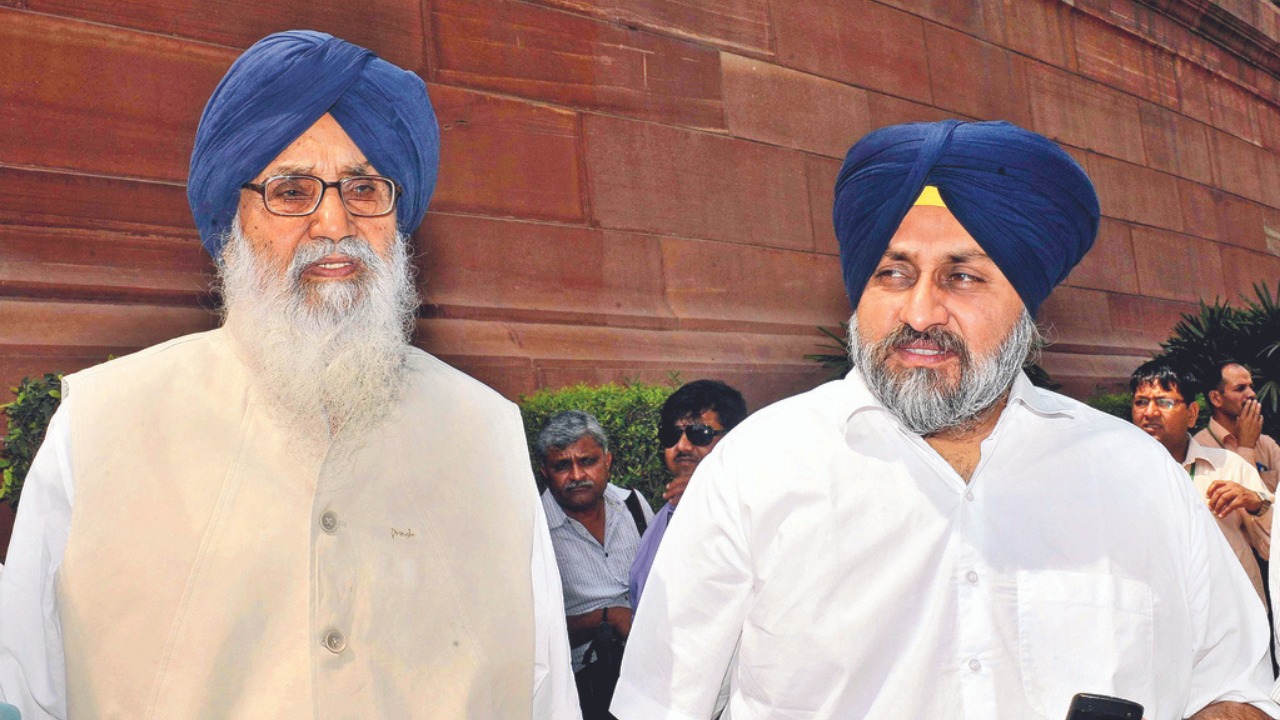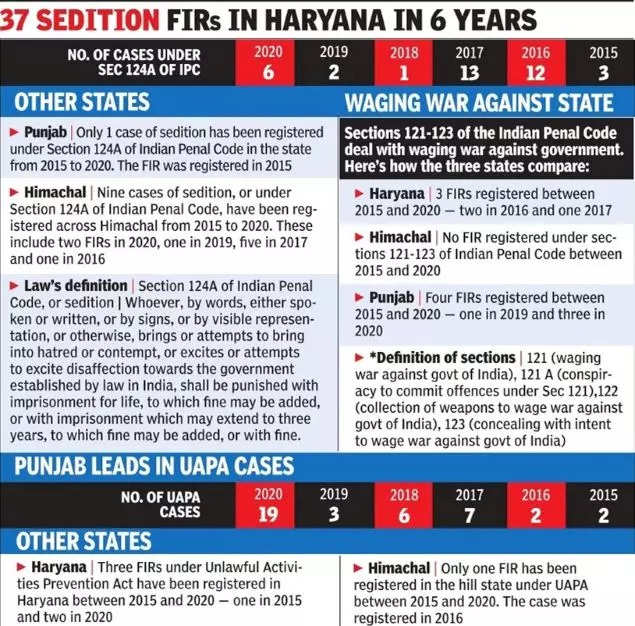
JALANDHAR: Shiromani Akali Dal president Sukhbir Singh Badal demanded a review of Unlawful Activities Prevention Act (UAPA) in a post on Twitter on Thursday, but the use of the stringent anti-terror law was not uncommon when Sukhbir himself was the deputy CM of Punjab during the SAD-BJP government’s rule in the state from 2007 to 2017.
Sukhbir’s tweet, calling for a review of UAPA and AFSPA, came a day after he participated in a meeting organised by Shromani Gurdwara Parbandhak Committee on the issue of Sikhs political prisoners who are behind bars even after serving their jail terms. Just after the SAD-BJP alliance came to power in 2007, SAD (Amritsar) president Simranjit Singh Mann became the first political leader to be booked for sedition in May 2007. Later, organisers of Sarbat Khalsa 2015 were also booked under the same provision in November that year.

Use of UAPA started in Punjab in 2009, after amendments were affected and stringent provisions were added in 2008.
“Countless Indians suffered due to colonial-era sedition law that strikes at heart of civil liberties and is misused to gag dissent. SAD welcomes SC decision to put this law on hold. I hope GOI (government of India) will take cue from SC and review UAPA/AFSPA that throttle human rights and freedom of expression,” Badal tweeted on Thursday.
Twitter users pointed out the use of these laws during Shiromani Akali Dal- BJP regime. The same statement was posted on Badal’s FB page also.
Mann and 20 of his associates, including a woman, were booked under charges of sedition by the Jalandhar police in May 2007 for hanging placards of Dilawar Singh, the assassin, around the statue of late CM Beant Singh at BMC Chowk in Jalandhar on May 14. The desecration of the statue was called “ghinauni harkat” (despicable act) in the FIR and they were accused of raising slogans of Khalistan and threatening to demolish the statues of PMs late Indira Gandhi and late Rajiv Gandhi.
Mann and others remained in jail for eight months and were released after Punjab and Haryana high court quashed the FIR. “Badal government even went to the Supreme Court to challenge the HC order, but the apex court upheld the high court order,” Mann had told TOI in December 2018, describing the entire episode as “egg on the face of the Badal government”.
After the Sarbat Khalsa at Chabba village near Amritsar on November 10, sedition charges were invoked by the Punjab government against Mann once again, along with United Akali Dal president Mohkam Singh, general secretary Gurdip Singh, three Sarbat Khalsa-appointed jathedars of Sikhs Takhts and other Sikh activists who were in the forefront of organising the mega congregation in the wake of Bargari sacrilege and Behbal Kalan firing incidents.
The first UAPA case during the SAD-BJP government’s term was registered against alleged Naxalites in Jalandhar in 2009, but the allegations fell flat in court. Later, Naxal ideologue Kobad Ghandi was also booked at Sadar police station in Patiala on January 23, 2010, along with Bacha Yadav. In this case also, Ghandi was acquitted and charges against Yadav dropped.
According to human rights lawyer Jaspal Singh Manjhpur, 47 cases of UAPA were registered during SAD-BJP regime in eight years, but convictions took place in only six cases. “Mainly Sikh activists were booked. Its (the law’s) usage increased in the last few years,” said Manjhpur, who remained in jail for around a year and half after being booked under UAPA on August 27, 2009. He was later acquitted.
UAPA was also invoked by Nawanshahr police against three Sikh men in May 2016, after the seizure of some literature from them. The then additional chief secretary (home) had even given sanction to prosecute them under UAPA. However a Nawanshahr-based court found the sanction for prosecution under UAPA invalid. Howeve, it convicted the three men in beginning of 2018 under sections 121 and 121 of IPC (for waging or attempting to wage war against Government of India) and sentenced them to life imprisonment. The literature seized from them included a paragraph of a prison letter written by freedom fighter and Sikh spiritualist Bhai Randhir Singh in 1926, pictures of 13 Sikhs killed in Nirankari–Sikh clash on April 13, 1978, in Amritsar and a poem by Bhai Fauja Singh, who was killed in the same clash.







